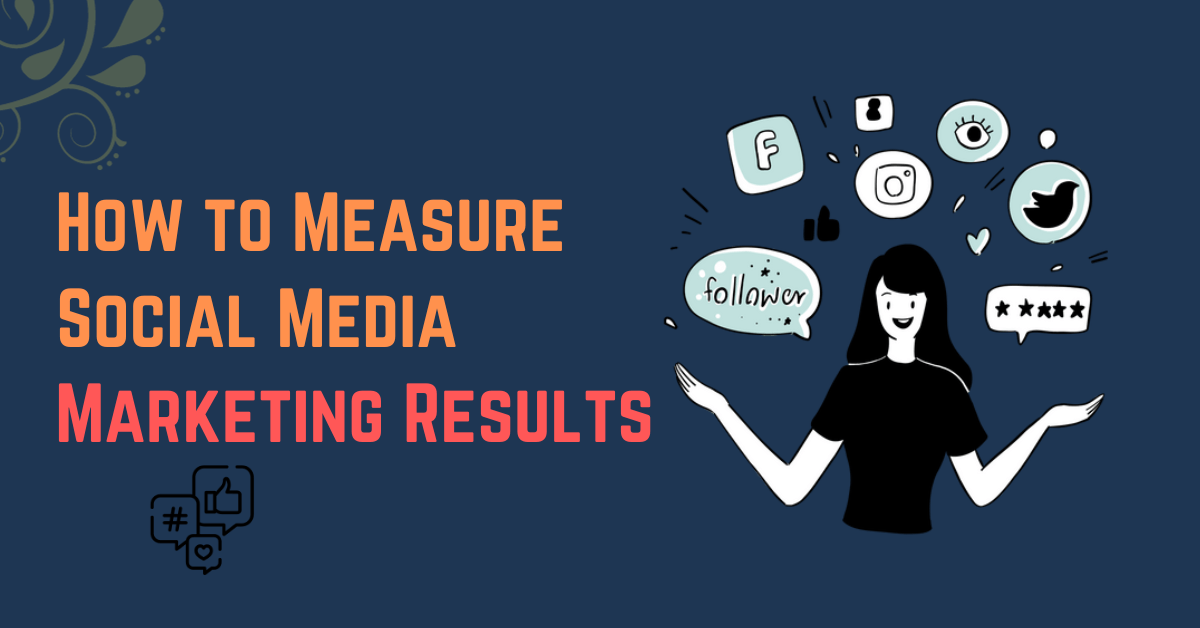Today, the internet is used by nearly 57% of the world’s population. You must have a strong online presence to connect with your intended customer base. Marketers need to be aware of the role of analytics in digital marketing to attain a prominent online presence.
The amount of data on the internet is growing day by day. You can use different types of digital marketing analytics to access and interpret this data. You can evaluate your progress with the use of analytics in digital marketing. These analytics help you track different metrics which as a result help you improve your strategies.
So, in this guide, we will discuss the role of analytics in digital marketing.
Table of Contents
ToggleImportance Of Analytics In Digital Marketing
Let’s discuss the role of analytics in digital marketing in detail.
Enhances Marketing Initiatives That More Effectively Fit Consumer Behavior.
The most important role of analytics in digital marketing is that it helps firms optimize their marketing strategies that more effectively fit customer behavior.
You can modify your marketing strategy to fit the tastes of your intended customers once you have a better grasp of them. You can determine the factors that led to and influenced your audience’s response to your marketing material.
By choosing the best communications channels and frequencies, you may increase the effectiveness of your marketing initiatives. For instance, if digital analytics show that your target audience reads your email newsletters more often than social media postings, you might increase your email marketing expense to boost conversions and sales.
Enhances Personalization
You can learn important insights from digital analytics about how customers interact with various channels and are likely to react to your efforts.
By using this data, you can tailor your digital content, delivery method, and timing to your target audience’s particular tastes, increasing their likelihood of conversion.
Enhances The User Experience
One major role of analytics in digital marketing is that it enhances customer experience. Marketers can monitor user behavior on websites with the use of digital analytics. This aids them in comprehending crucial user experience information, such as the reasons why consumers leave items in their shopping cart or where they leave the website.
They can then make use of these insights to remove roadblocks to user experience and simplify website navigation to enhance user experience and boost conversions.
Aids In Forecasting Consumer Behavior
Marketing analytics give marketers knowledge about previous customer interactions and assist in finding trends that forecast future behavior.
Analytics also aids marketers in keeping track of trends and gaining an advantage over rivals. For instance, if analytics show that a certain post for a specific holiday attracted a lot of engagement, digital marketers might take advantage of this pattern to draw even more engagement.
Helps In Making Data-driven Predictions
The most essential role of analytics in marketing is that it helps businesses in making data-driven predictions. You can do predictive analysis and detect existing trends using data analytics to make data-driven and informed marketing decisions.
Businesses can choose which products to advertise when using predictive data analysis. It enables you to foresee business trends and adjust your marketing initiatives to reflect prevailing trends.
Essential Metrics To Consider For Digital Marketing
We have discussed the role of analytics in digital marketing in detail, let’s discuss some important metrics to consider for marketing. Incorrect metric selection may fail to produce the desired outcomes. The following are the important metrics for various digital marketing initiatives.
Essential Web Analytics Metrics
Marketing experts can make wise choices about user experience, website design, and webpage makeup by analyzing the appropriate digital metrics for websites. The following are some crucial digital metrics for websites:
- Site loading speed: This reflects the length of time it typically takes for a visitor to view a webpage. The user experience is improved by quick loading speed.
- Session: This shows how engaged a user is on a certain page. A session is when a user actively scrolls, reads, and navigates to various portions of the website. Traffic: This shows the overall amount of page views and aids marketers in tracking website traffic sources to see where users are accessing the site from. Organic, direct, sponsored, referral, and social traffic are some of the several types of site traffic.
- Duration on page: This is the amount of time a person spends per session on a website.
- Visits per interaction: The quantity and kind of actions a user does during a session on your website
- Bounce rate: The proportion of site visitors that abandoned it before doing the specified activity, such as making a purchase.
Social Media Marketing Analytics Metrics
Users’ activities are what social media marketing analytics are primarily concerned with. The following are the most essential KPIs to consider:
Shares, Likes, and Follows:
This social media metric plays the most important role and counts the number of times a certain social media article or account has been shared, liked, or followed.
Engagement Rate:
As the name implies, this metric counts engagement, all interactions with a social media post, such as likes, comments, shares, and saves.
Conversion Rate:
The conversion rate gauges how frequently social media posts lead to conversion actions like downloads, sales, or subscriptions.
Audience Growth Rate:
The rate at which you get new followers is known as your audience growth rate. This statistic is more beneficial than a simple follower count as it enables you to set up specific goals.
List of Analytics tools for Social Media Platforms
Best Facebook Analytics Tools
- Sprout Social
- Hoot suite
- Keyhole
- Social Status
Best Twitter Analytics Tools
- Sprout Social
- Twitter Analytics
- Brandwatch Consumer Research
- Buffer
Best Instagram Analytics Tools
- Iconosquare
- Pallyy
- Sprout Social
These analytics tools help businesses measure different metrics important for improved digital marketing strategies.
Email Marketing Analytics Metrics
To assess the effectiveness of email marketing efforts, digital marketers can utilize the KPIs listed below:
Open Rate:
An email newsletter’s open rate compares the proportion of users who open it to the overall number of emails delivered.
Email Delivery Failure Rate:
It is the proportion of emails that were sent as part of a marketing campaign but not successfully delivered.
Click-through Rate (CTR):
CTR measures how many users clicked on the email’s designated call to action as opposed to how many people just opened it.
Canceled Subscription Rate:
This metric measures the ratio of subscribers who have canceled their subscriptions to all subscribers.
Most Popular Analytics Tool: Google Analytics
Google Analytics is increasingly being used in marketing because it is a reliable resource for analyzing the results of a digital marketing effort. Google Analytics provides useful insights from the data it studies, from assessing website metrics to tracking social media metrics.
A digital marketing agency can use it to identify the main user traffic sources, evaluate the effectiveness of their marketing initiatives and campaigns, monitor goal completions (like purchases and the addition of items to carts), identify patterns and trends in user engagement, and gather other visitor data like demographics.
Small and medium-sized retail websites frequently utilize Google statistics to gather and analyze different customer behavior statistics, which can be used to enhance digital marketing campaigns, increase website traffic, and better retain customers.
Final Words
Marketers should have a clear insight into the role of analytics in digital marketing if they want to be successful and promote their company online. Use different analytics tools to monitor different metrics and make better decisions, and boost your marketing efforts. You can establish precise objectives and monitor your progress toward them by concentrating on the most crucial metrics.
The well-known software development companies like GVM Technologies LLP , have a highly proficient team of software developers, with all of the aforementioned skills. So, you must enhance your skills in order to compete in the market and get a position at a respectable, well known software development company.
Author: GVM Technologies
Related Blog
-

20 Tips to Create Engaging Social Media Content
Social media has improved as a connection-making t...
-

How to Measure Your Social Media Marketing Results
Social media is now recognized as a powerhouse for...
-

Comprehensive Social Media Marketing Guide
What is Social Media Marketing? A definitive Guide...
Category
- Uncategorized (2)
- Web Design (9)
- Software Development (5)
- Web Development (5)
- Digital Marketing (19)
- Mobile Development (2)
